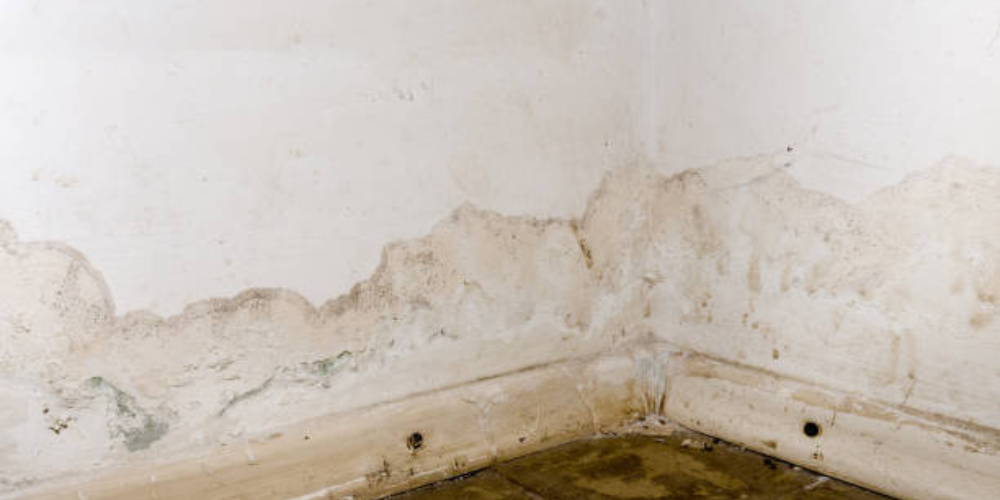
Water damage is one of the most underestimated threats to a domestic. While many homeowners focus their attention on visible issues like cracked paint or leaky faucets, the real danger frequently lurks underneath the floor slowly consuming away at foundations, weakening partitions, and developing the correct environment for mold and mildew to flourish. Whether it’s from heavy rain, burst pipes, or high groundwater tiers, water infiltration can cause hundreds of dollars in harm in a very quick quantity of time.
What makes water damage mainly dangerous is its subtlety. It doesn’t always announce itself with dramatic floods or obvious leaks. Sometimes, it is a slow,creeping hassle that builds through the years—staining ceilings, warping flooring, and silently compromising your house’s structural integrity. Unfortunately, by the point most people observe the signs and symptoms of water damage, the underlying difficulty has already taken root and calls for great (and pricey) remediation.
This is when waterproofing steps in as your property’s unsung hero. Waterproofing isn’t simply an optional upgrade it’s a proactive answer that acts as a defensive barrier between your own home and the elements. From basements and move-slowly spaces to roofs and foundations, right waterproofing guarantees that water remains outdoors, where it belongs.
What is Waterproofing and Why is it Important
Waterproofing is the manner of making a shape proof against the penetration of water. It involves applying specialized materials and techniques to numerous elements of a building such as foundations, walls, roofs, basements, and even interior moist zones like bathrooms and kitchens to save you water from getting into and inflicting water damage. Whether it’s external waterproofing with membranes and drainage structures or internal remedies the use of sealants and coatings, the main goal is to dam moisture and redirect it appropriately away from the home.
But waterproofing isn’t always just about preserving matters dry it is approximately protective the lengthy term integrity and value of your property. Without good enough waterproofing, your own home is prone to numerous troubles, a number of which won’t be without delay visible. Moisture that seeps into a wall or basis may also take weeks or months to show signs, and by the time it does, the damage is frequently already excessive and high priced to repair.
One of the largest risks of water intrusion is structural harm. Water can weaken concrete, corrode metal reinforcements, rot wooden helps, and cause soil erosion beneath foundations. Over time, this may compromise the protection of the whole structure. In basements and crawl spaces, water intrusion is particularly elaborate due to the fact these areas are regularly out of sight, making leaks and mildew growth more difficult to locate till it’s too late.
How Waterproofing Shields Your Home from Water Damage
Waterproofing is the process of making a structure resistant to water infiltration. It’s an essential line of defense that protects your home’s integrity, health, and value. Here’s how it works:
1. Prevents Structural Deterioration
Moisture is a silent destroyer. When water seeps into foundations, walls, or wooden components, it can cause materials to warp, crack, and rot. Over time, such moisture weakens your home’s structural support, leading to costly repairs. Waterproofing acts as a protective layer that stops water before it causes damage.
2. Stops Mold and Mildew Growth
A damp environment is a perfect breeding ground for mold and mildew. These fungi damage your home’s surfaces and pose serious health risks, especially for people with allergies or asthma. Waterproofing keeps areas like basements, crawl spaces, and bathrooms dry, reducing the likelihood of mold infestations.
3. Protects Interiors and Belongings
Water damage isn’t just a structural concern it can ruin flooring, furniture, electronics, and other valuables. Waterproofing your roof, windows, and basement ensures that your interior stays dry, preserving both comfort and property value.
4. Reduces Energy Costs
Unbelievably, waterproofing can enhance the energy efficiency of your home. Moisture can make insulation less effective and force your HVAC system to work harder. By sealing out water, you help maintain a consistent indoor temperature, lowering your heating and cooling bills.
5. Increases Home Value
A well-maintained, waterproofed home is more attractive to potential buyers. It’s a sign of a responsible homeowner and a property that won’t require immediate repairs. Such attributes can significantly boost your home’s resale value and speed up the selling process.
Common Areas That Need Waterproofing
Water can locate its manner into almost any a part of a home, but sure areas are especially prone and ought to be prioritized when making plans waterproofing measures. Basements and crawl areas are a number of the most at-threat zones due to their below-ground place, making them prone to groundwater seepage and foundation leaks.Bathrooms and kitchens, being high-moisture environments, regularly require proper sealing round sinks, bathtubs, and tiles to prevent water from penetrating walls and flooring.
Roofs and attics are also essential areas, as they’re immediately uncovered to rain, snow, and humidity. Poor roofing or clogged gutters can cause water pooling and eventual leakage into the home. Exterior walls, specially the ones facing winning winds or situated close to poorly draining soil, can absorb moisture over the years if not properly treated. By figuring out and addressing these high-risk regions with appropriate waterproofing solutions, owners can notably reduce the chance of water damage and preserve a safe, dry residing surroundings.
FAQs About Waterproofing and Water Damage
Q1: How do I realize if my domestic desires waterproofing?
Common signs encompass a humid basement, musty odors, visible mildew, peeling paint, water stains, and cracks inside the basis. If you word any of these, it’s an excellent idea to seek advice from a waterproofing expert.
Q2: Can I water-proof my home myself?
While there are DIY waterproofing products for minor problems, large-scale or long-time period waterproofing (specially for basements or foundations) is exceptional left to specialists who can examine the root purpose and follow the suitable answers.
Q3: What is the quality time of yr to water resistant a home?
Spring and summer time are best, because the warmer, drier conditions allow materials to treatment properly and make it easier to identify and attach troubles earlier than wet seasons arrive.
Q4: How long does waterproofing final?
Depending at the method and materials used, expert waterproofing can final 10 years or more. Regular inspections and protection can increase its life even further.


